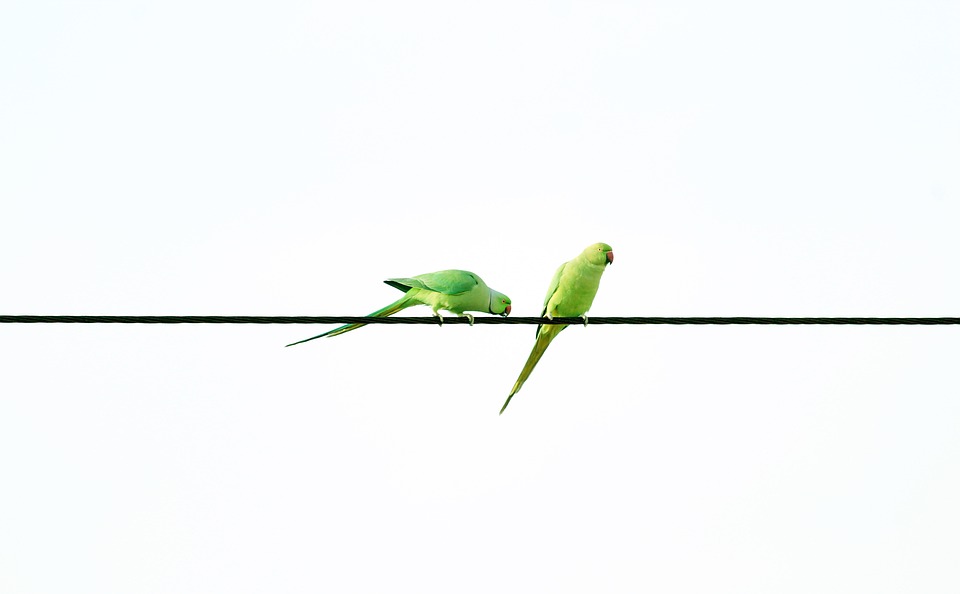Title: Discouraging Parrots from Excessive Jealousy or Possessiveness: Effective Strategies and FAQs
Introduction: Understanding Parrot Jealousy and Possessiveness
Parrots, known for their intelligence and social nature, can sometimes exhibit signs of jealousy and possessiveness. Understanding these behaviors and their triggers is essential in promoting a healthy and balanced environment for your feathered friend.
1. Recognizing the Signs of Jealousy or Possessiveness
Parrots communicate their emotions through various physical and vocal cues. Signs of jealousy or possessiveness may include aggressive behavior, vocalizations of distress or anger, and physical displays such as biting or feather plucking. Changes in behavior, such as increased aggression or territorial tendencies, can also indicate jealousy or possessiveness.
2. Establishing a Healthy Social Environment
Providing ample social interaction is crucial in minimizing jealousy or possessiveness in parrots. Spending quality time with your parrot, engaging in interactive play, and offering positive reinforcement can help strengthen the bond between you and your pet. It is also important to encourage positive relationships with other humans and pets in the household to prevent over-dependency on a single caregiver.
3. Ensuring Mental Stimulation and Enrichment
Boredom can contribute to jealousy and possessiveness in parrots. Offering a variety of toys, puzzles, and activities can keep your parrot mentally stimulated and help redirect their focus from possessive behaviors. Rotating and introducing new stimuli regularly can prevent monotony and provide ongoing enrichment. Incorporating foraging opportunities, such as hiding treats or food in puzzle toys, can also engage your parrot’s natural instincts and reduce possessiveness.
4. Promoting Consistent and Balanced Routines
Parrots thrive in predictable environments with consistent routines. Establishing a daily schedule that includes regular feeding, playtime, and sleep can help create a sense of security and stability for your parrot. Providing a safe and comfortable living space, with designated areas for rest and play, can further contribute to their overall well-being.
5. Training and Positive Reinforcement
Training your parrot with basic commands and tricks not only stimulates their mind but also helps establish boundaries and reinforce desirable behaviors. Positive reinforcement, such as treats, praise, or playtime, can be used to reward desired behaviors and redirect attention away from possessive tendencies. Implementing redirection techniques, such as offering an alternative toy or activity, can help divert their focus and discourage possessive behavior.
6. Addressing Jealousy or Possessiveness Towards Other Pets
If your parrot displays jealousy or possessiveness towards other pets, gradual introductions and supervised interactions can help them adjust and develop positive relationships. Providing separate spaces and resources, such as separate cages, feeding stations, and toys, can prevent conflicts and reduce possessive behavior. Ensuring fair attention distribution and maintaining balanced interactions between pets can also help alleviate jealousy.
7. Seeking Professional Help
In some cases, professional guidance from an avian behaviorist or veterinarian may be necessary. They can help assess the underlying causes of jealousy or possessiveness and provide tailored strategies to address the behavior effectively. It is important to reach out for professional help if the behavior persists or becomes problematic.
FAQs about Discouraging Parrots from Excessive Jealousy or Possessiveness
1. Can jealousy or possessiveness be completely eliminated in parrots?
While it is possible to reduce and manage jealousy or possessiveness in parrots, completely eliminating these behaviors may not always be achievable. Each parrot is unique, and the extent to which they display these behaviors can vary.
2. How long does it take to change a parrot’s jealous or possessive behavior?
The time it takes to change a parrot’s behavior can vary depending on various factors, including their individual temperament, environment, and the consistency of training and reinforcement. Patience, consistency, and positive reinforcement are key in achieving behavior change.
3. What are some common mistakes to avoid when addressing parrot jealousy or possessiveness?
Some common mistakes to avoid include punishing or scaring the parrot, reinforcing possessive behavior unintentionally, or neglecting the importance of mental stimulation and enrichment.
4. Can parrots develop jealousy or possessiveness towards humans?
Yes, parrots can develop jealousy or possessiveness towards humans, especially if they perceive a threat to their bond or attention. Providing balanced social interactions and avoiding over-dependency can help prevent or reduce these behaviors.
5. Are there specific parrot breeds or species more prone to jealousy or possessiveness?
While individual personalities and experiences play a significant role, certain parrot species, such as African Greys and Amazons, are known to be more prone to possessive behaviors. However, it is essential to remember that every parrot is unique and may exhibit varying degrees of jealousy or possessiveness.
6. Is punishment an effective method to discourage jealousy or possessiveness in parrots?
Punishment can lead to fear, stress, and aggression in parrots, making it an ineffective approach. Positive reinforcement and redirection techniques are more effective and humane methods to discourage possessive behaviors.
7. Can parrots learn to share attention with other pets or humans?
Yes, with proper training and socialization, parrots can learn to share attention and develop positive relationships with other pets or humans. Gradual introductions, supervised interactions, and fair attention distribution are important in fostering harmonious relationships.
8. Are there any natural remedies or supplements that can help reduce parrot jealousy or possessiveness?
While some natural remedies or supplements claim to reduce stress or anxiety in parrots, it is important to consult with a veterinarian before using them. Professional guidance and addressing underlying behavioral issues are key in effectively managing jealousy or possessiveness.
Conclusion
Discouraging excessive jealousy or possessiveness in parrots requires a combination of strategies, including providing a healthy social environment, mental stimulation, consistent routines, training, and positive reinforcement. It is important to remember that each parrot is unique, and seeking professional guidance when needed is crucial for addressing persistent or problematic behavior. With patience, consistency, and positive reinforcement, you can create a harmonious and balanced environment for your parrot.









